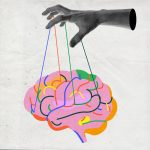Sports help children develop physical skills, get exercise, make friends, have fun, learn teamwork, learn to play fair, and improve self-esteem. Regular participation in sports also enhances children’s physical health by improving their overall fitness, coordination, balance, and endurance. Many health issues can always be avoided as sports plays a big factor in reducing the risk of obesity and related health problems such as diabetes and heart disease in children.
Taking part in sporting activities provides children with opportunities to interact with others, make friends, and develop important social skills such as communication, teamwork, and leadership.
Regular physical activity and participation in sports have also been linked to improved overall mental health and well-being in children, helping to reduce the risk of mental health issues such as anxiety and depression.
Listed below are ten benefits for taking part in sports:
- Improved self-esteem: Sporting activities provide children with opportunities to develop their skills and improve their performance, which can boost their self-confidence and self-esteem.
- Reduced stress and anxiety: Physical activity and exercise have been shown to reduce stress and anxiety in children, helping them to feel more relaxed and focused.
- Better mood: Regular exercise and physical activity can help to release endorphins, which are natural mood-boosters that can help children feel happier and more positive.
- Sound sleep: Exercise has been shown to improve sleep quality and duration, which can have a positive impact on children’s mental health and cognitive function.
- Increased resilience: Sports can help children develop resilience and coping skills, as they learn to deal with both successes and setbacks.
- Social skills: Playing sports provides children with opportunities to interact with others, make friends, and develop important social skills such as communication, teamwork, and leadership.
- Reduced risk of depression: Regular physical activity has been linked to a reduced risk of depression in children and adolescents.
- Improved concentration and focus: Physical activity can improve blood flow to the brain, which can enhance cognitive function, including concentration, memory, and focus.
- Increased creativity: Exercise has been shown to stimulate the brain’s creative centers, which can help children to think more creatively and generate new ideas.
- Overall mental health benefits: Regular physical activity and participation in sports have been linked to improved overall mental health and well-being in children, helping to reduce the risk of mental health issues such as anxiety and depression.
The World Health Organization recommends that children participate in at least 60 minutes of moderate to vigorous physical activity each day. While sports can play an important role in promoting physical, social and mental well-being in children, these crucial skills and habits equip them with many benefits that can last a lifetime.









